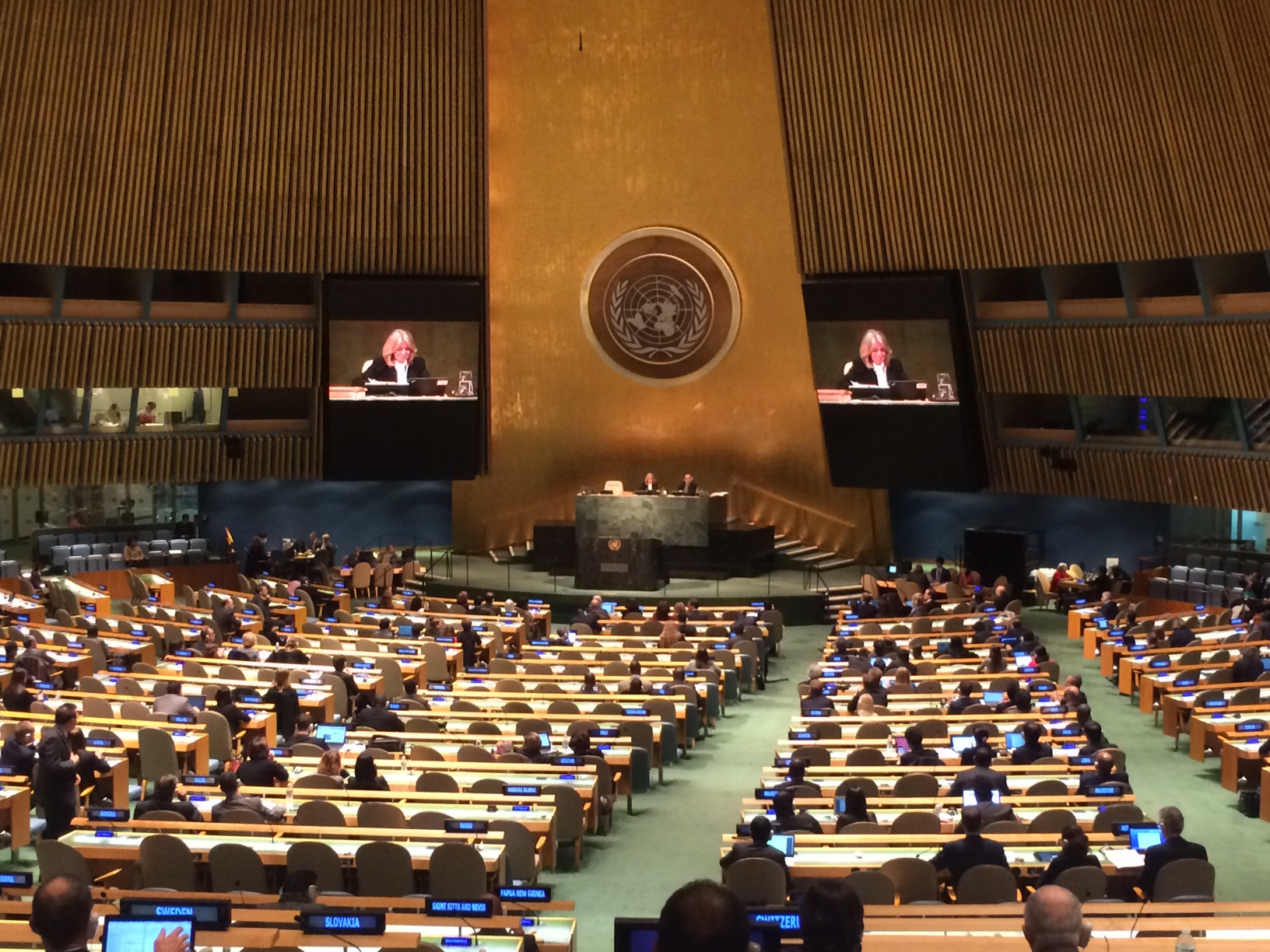IFLA welcomes the Outcome Document of the WSIS+10 Review
17 December 2015
The United Nations General Assembly approved the Outcome Document of the High Level Meeting of the General Assembly on the Overall Review of the Implementation of the WSIS Outcomes on the 16th of December in New York. The Outcome Document reaffirms the commitment to the vision of the World Summit of the Information Society (WSIS) to build a people-centred, inclusive and development-oriented Information Society. IFLA welcomes the outcome document and its recognition of the importance of ICT for development, the commitment it demonstrates to addressing the digital divide and the identification that we must ensure those who have access can make use of information by facilitating media and information literacy, multilingualism, local content and preservation of culture heritage.

The Outcome Document
IFLA supports the document and the references to our issues, such as access to information, public access to ICTs, literacy and preservation of cultural heritage, throughout the text. In particular we welcome:
- Paragraph 6 of the document acknowledges the importance of a society where "everyone can create, access, utilize and share information and knowledge, enabling individuals, communities and peoples to achieve their full potential in promoting their sustainable development and improving their quality of life."
- Paragraph 29, it recognizes that people also need "the capabilities and capacities, including media, information, and digital literacy skills to make use of and further develop ICTs."
- Paragraph 11, the Outcome Document notes continuing digital divides, "both between and within countries and between women and men, which need to be addressed through, among other actions, strengthened enabling policy environments and international cooperation to improve affordability, access, education, capacity building, multilingualism, cultural preservation, investment and appropriate financing."
- Paragraph 34, which recognises that “public access facilities have in many countries facilitated significant gains in connectivity and sustainable development.”
Recognizing that connectivity, access, and skills are critical, the document also acknowledges the need for relevant content and the role of content on the Internet in supporting the diversity of cultural expression. It identifies the need to develop practical strategies to preserve cultural heritage and access to recorded information. It further acknowledge that ICTs "have shown their potential to strengthen the exercise of human rights, enabling access to information, freedom of expression, and freedom of assembly and association." (Paragraph 47) It identifies that "the same rights that people have offline must also be protected online." (Paragraph 14)
IFLA notes that WSIS and the Internet Governance Forum (IGF) are important venues for libraries, where we can be part of conversations and communicate our critical role in facilitating access to information and building skills in local communities. The multi-stakeholder environment of conversations at these forums give a voice to all participants, and creates a place where government, private sector, civil society and academic and technical communities can work together to solve problems. The Outcome Document approved in December 2015 continues this commitment to multi-stakeholder processes for Internet governance, and IFLA looks forward to continuing to be involved in the conversations.
The World Summit on the Information Society (WSIS) process and its outcome documents are considered cornerstones of international norms and discourse on internet policy and governance.
Background
IFLA has been involved in WSIS since its foundation at the 2003 Geneva Summit. In 2015, IFLA participated in all stages of the consultation process through commenting on draft papers and providing input at preparatory meetings. Issues that are important to libraries are reflected throughout the document, particularly in sections that discuss ICT for Development and closing the Digital Divide.